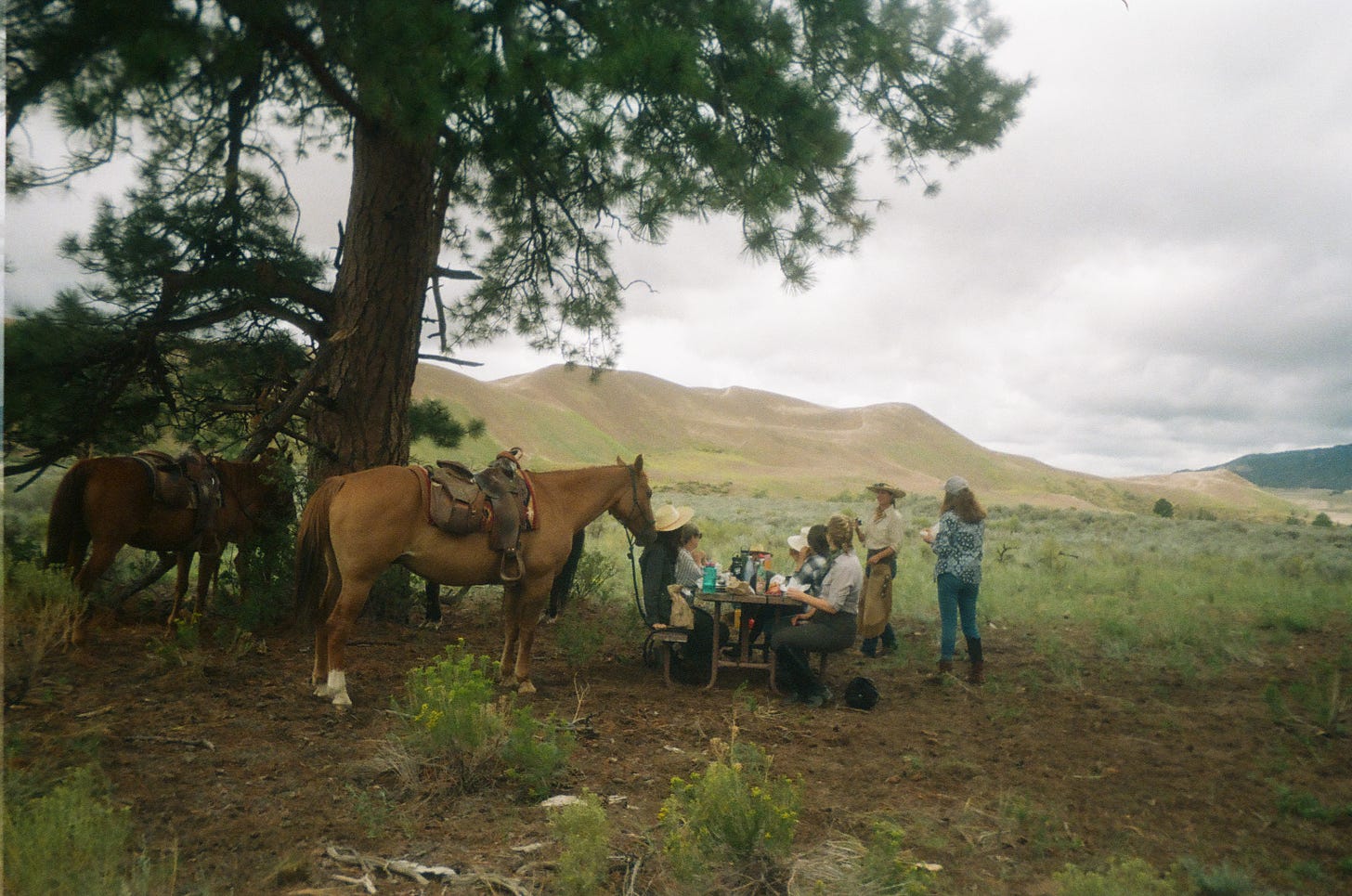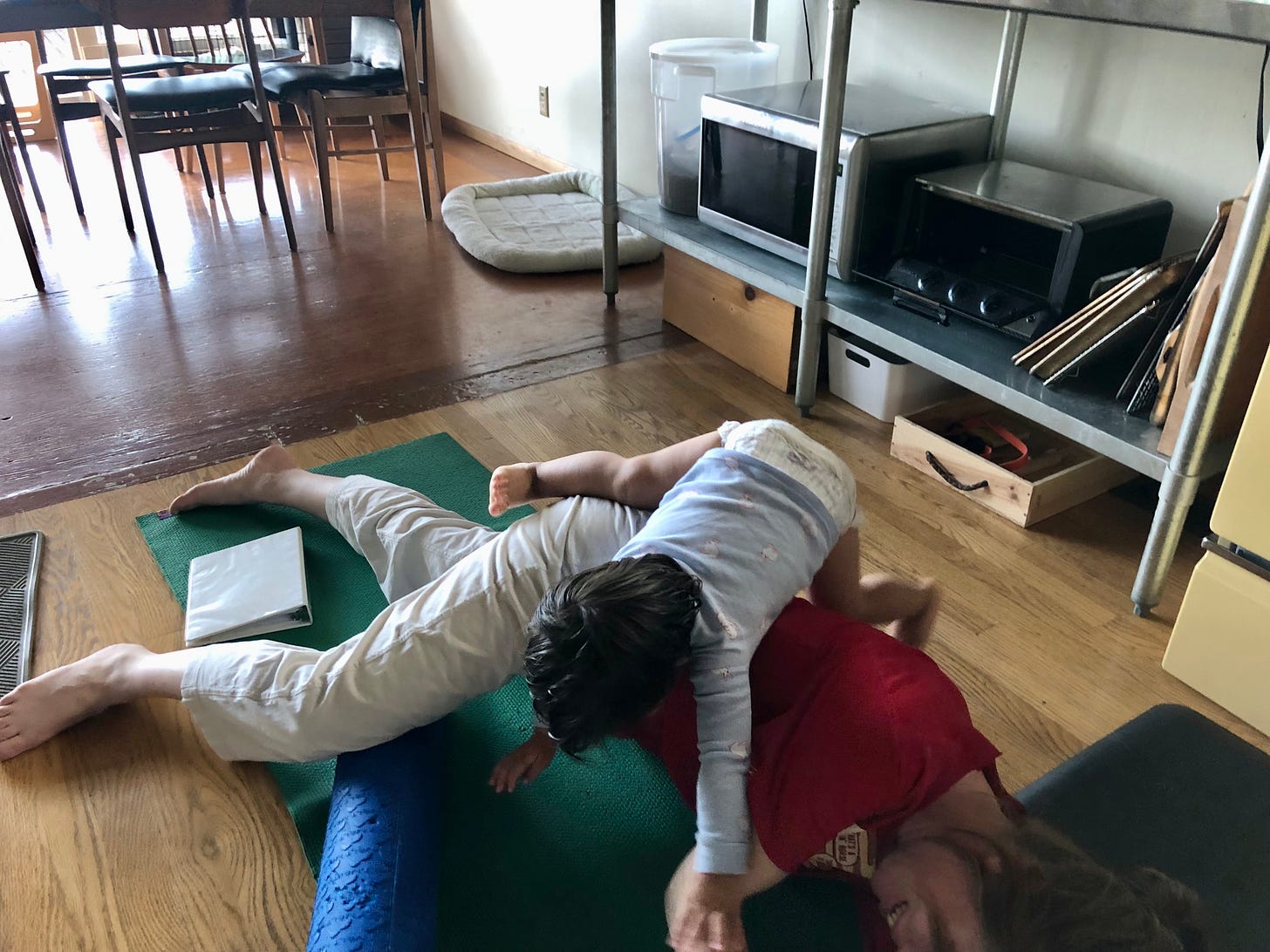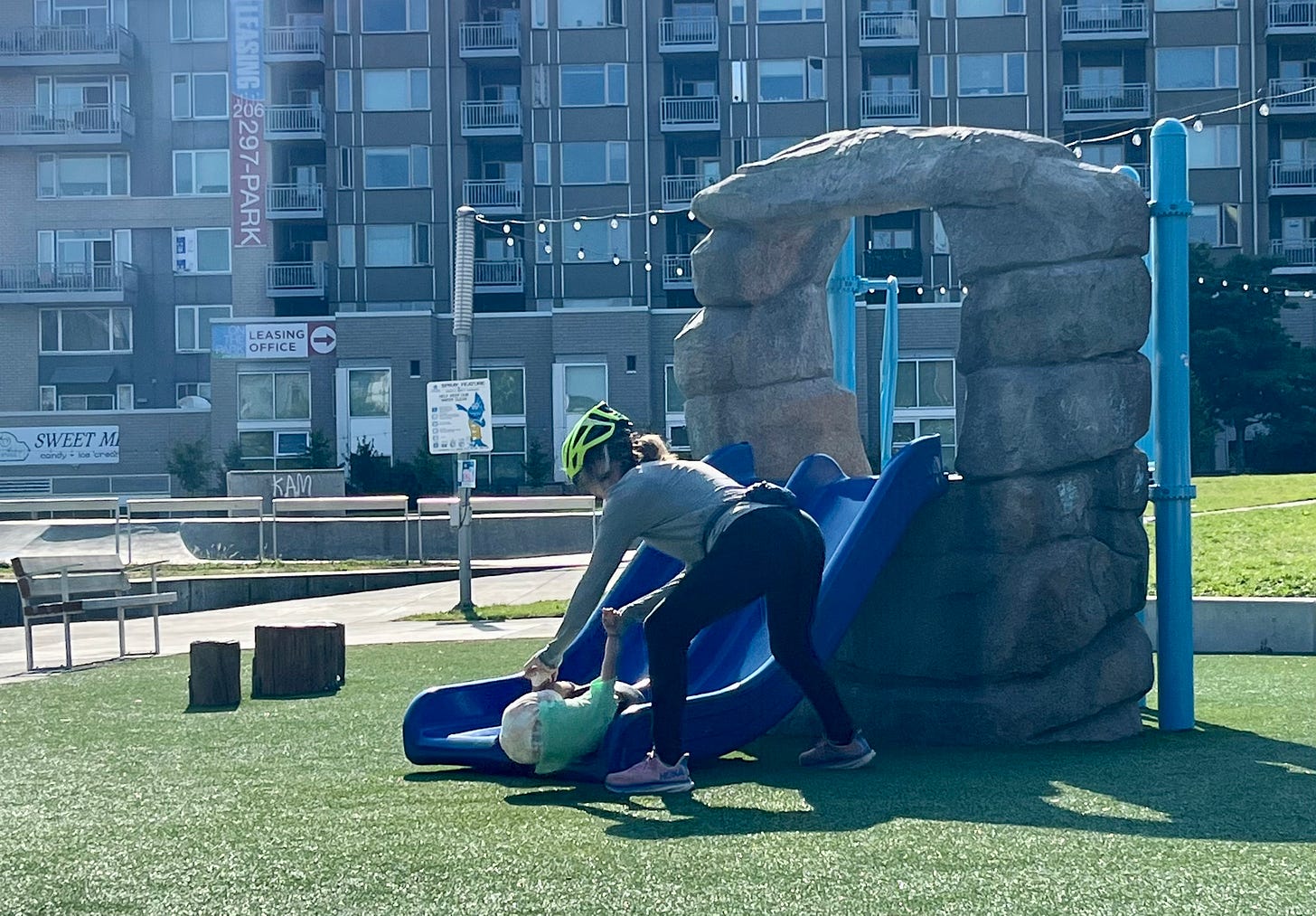There’s one spot open in my August 25-30 writing workshop at Zapata Ranch, in Mosca, Colorado. It had been sold out, but there was a cancellation this week! This will be my third and final year of teaching at the Zapata — after the ranch’s 2024 season, the Nature Conservancy, which owns the property, is converting it to other uses — so if you’ve wanted to write and ride with me there, now’s your chance.
There are also a handful of spots available in my first-ever workshop in Europe: a writing-based retreat I’m calling “Writing to Restore,” from April 12-19, 2025, at Clos Mirabel, in Jurançon, France. This is literal stuff of dreams: a week at an 18th-century manor house in the French Pyrenees, reading, writing, eating, resting, learning. All are welcome in this personal-narrative workshop: you don’t have to call yourself a “writer.” I love to teach writing because of the opportunity it offers us all to transform ourselves through art. Please join us.
Finally, there are a few spots available in an online workshop I’ll be teaching this fall, October 29 to November 15, Tuesdays and Fridays, from 9:30 to 11:30 Pacific. If you’re seeking a renewed connection to your writing self, I’d love to have you with us.
This summer has felt like a lot, maybe because it’s felt like the first summer that we really have two children. Last summer Ash was newly back at work after having had Ames in January, and the baby still slept for long stretches of each day. He was relatively portable, amenable in the way of an infant, a human who cannot yet walk, talk, or put your electric toothbrush in the recycling bin. I was more tired then, but it all felt provisional: whatever we were going through, it would change almost before we could form words for it.
Or maybe it didn’t actually feel like that, maybe this is only how it looks to me now. Because this summer, we have a toddler where last we had a baby, and I have found myself struggling to articulate the experience not because it changes so constantly, but because if I take my eyes off him long enough to enjoy a complete thought, he’ll dead-lift his own bike and heave it over the stair railing.
And what I want to articulate isn’t about him; it’s about the other child, the one who will be twelve years old in six short weeks. She continues to be the person she’s been all along, since her own infancy and toddlerhood. She is observant and perceptive and sensitive, a comic with excellent timing, bold and independent, quick to tears, a bookworm, a thespian, a fan of thrifting and vintage stores, a head taller than her peers, someone her teacher calls “the voice of thoughtfulness in our community.” She came out like that. I try not to write much about her anymore, not for years, for all the usual reasons. But she’ll start middle school this fall, and like me at her age, like most of us who grow up as girls, she already knows what it is to be bullied, to be excluded, to be told her body is too whatever, to feel that no one wants to be her friend.
We have done what we can. I’ve sent emails, had meetings with her teachers, commiserated with fellow parents. I brought a copy of Fat Talk to a meeting with the head of school and asked her to read it. I’ve initiated difficult conversations with other mothers. This spring I semi-lost my shit on her teacher, who didn’t deserve it, who I came to believe was doing her best. I have taken an ongoing volunteer gig at the school for the coming year, so I have a reason to be around more, see more, without interfering.
I too grew up with a vicious cohort of girls. I learned sociality, in large part, from that cohort of girls. I was not “popular,” but I have been small and smug, a born snob. I repeated rumors, judged, and criticized. I stole a girl’s bag of Cheetos straight from her lunchbox and lied to her face about it. I was once a kid who refused to loan a pencil to another kid, instead chiding her — I remember it distinctly — for not bringing her own. And I believed it, too, that she should have come prepared. It would be years before I’d realize I’d had a choice, that I could have responded differently. It has not come easily. Ash and I have a running joke that they’re going to set up a YouTube channel for me where I can post all my most insufferable critiques in the form of instructional videos, like, “How to Snap Your Fingers THE RIGHT WAY, with Molly Wizenberg,” and “THE RIGHT WAY to Style Your Hair When You’re a Gymnast in the Olympics.”
Anyway, there are plenty of books and movies and articles about why being a teen or tween girl among girls is so difficult, about the bloody dynamics of their social worlds. I’ve got all the Lisa Damour books. I’m not particularly interested in their analyses, though maybe I should be. I know plenty of reasons why women living under a capitalist patriarchy might try to diminish other women.
I could feel the shadow of those girls on me well into my thirties. I doesn’t help that I tend toward what pop psychology calls a “comparison mindset.” It’s only in the last ten years (maybe? at most?) that I’m able, sometimes, to catch my brain before it gallops away with the cart. I will never be someone who gives zero fucks. Are there actual people with actual human brains who give zero fucks? I’m skeptical. But I do think, and this is in part what The Fixed Stars was about, that becoming June’s mother made me braver, productively angrier, less willing to stay in situations where I feel stuck. Lately that anger and restlessness has been on my daughter’s behalf, that so much of growing up a girl is still the same as it ever was.
God this sounds namby-pamby. And I know we are all tired. Everything conspires to make us tired. But most every adult woman I know endured bullying and/or social exclusion as a girl, so I’d think we’d all be on high alert for it, confronting it whenever we see it, trying to teach our kids toward a less cutthroat experience of girlhood. Even when it’s our own kid who is cutting throats.
Recently, at a school event, I watched a few of my child’s female classmates coalesce into a tight huddle, swirling around each other, stroking each other’s hair, while June stood quietly a few paces away, alone. I leaned toward the parent next to me and said, “Isn’t it interesting to see their social dynamic when they think no one is watching?” — a chickenshit way, I admit, to say what I was thinking. “It’s so wonderful,” the other parent said, smiling toward our kids, “how they really are one big community! They’re all friends!” I didn’t know what to say after that, so I said nothing.
Maybe many of us parents are on high alert, and as frustrated as I am. Maybe there’s really nothing to be done. Humans are animals, is that it? I sense that all I can do is what I am already doing: listening to my child; commiserating; affirming; teaching her how to identify and see beyond fatphobia and diet culture; helping her find language to say who she is, what she wants, and what she needs. I will keep trying to see her clearly. I survived the cruelty and influence of my peers. I know I should trust that my children will too. Someday I hope to look back and smile, or something, at my quaint hand-wringing.
It’s true what they say, how raising a child forces you to revisit your own childhood. It also forces you to look hard at your adulthood. I’ve been thinking lately about the tenor of my own friendships now, at age 45. I’ve been asking myself what I believe friendship should look like, and whether I am a good friend, whether I have good friends, what I might want to change, what I have the energy to change.
A family we love is packing up their home of two decades and moving to an island three hours away. For several years, this family has held a sort of keystone position within our kids’ school, and within my family’s life too. I use the word ‘keystone’ intentionally, and also sheepishly: it reveals more than I really want to acknowledge about how much we’ve loved, and also depended on, their presence.
They are the kind of people who have a great personal capacity, a quality I notice in others because I often feel that my own capacity is limited, easily exhaustible. They say yes to tasks no one else wants to take on. They cook enough for extra. They have enough chairs somehow to always pull up another. Their house is stuffed with library books and past years’ Christmas cards and egg cartons that no one has gotten around to recycling, and the cat is named after a social concept. There are lots of us who know the code that unlocks their front door. This family is beautiful by any definition, in all the ways people can be beautiful.
I sometimes worry that we’ve enjoyed them too much. I don’t mean that we should have held ourselves back, though I have considered it. Once a week or so, in private, I let myself get good and pissy that they are leaving — just leaving, as if nothing here was worth staying for, as though they never cared about us as much as we cared about them, as though our friendship didn’t mean anything. Had we been stingy with ourselves, we’d have less to lose. But I don’t think that would be friendship.
I am still working to find words for what I hope for, for all of us — June, myself, Ash, Ames someday, our friends who are here and our friends who are moving on. I hope we all become ever more ourselves, with minimal hindrance. Where we can, I hope we help each other. I am thinking a lot about something I read recently by the Swedish author
, a sort of mission statement for who we can, if we choose, be to one another.“This is what I infer when I see someone who is comfortable in their unique strangeness. There probably exists someone who enabled that evolution of personality. A parent, a friend group, a spouse. It is rare for people to come into themselves if no one is excited and curious about their core, their potential. We need someone who gives us space to unfold.”1
I found Karlsson’s work via Laura Olin, whose newsletter is a perennial favorite.









The biggest thing I think parents can teach their kids is not just being nice, but being inclusive. There’s a huge difference.
This post also reminds me of Michelle Obama talking about her mother saying, “Don’t worry whether anybody likes you. Come home. We’ll always like you here.”
Being a teenage girl can be a unique kind of torture but June is lucky to have you - to have someone who tells them that they are uniquely perfect and beautiful just as they are. Don’t ever underestimate the power of that.